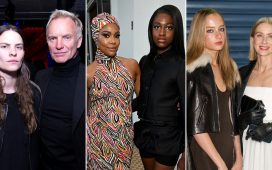A lawsuit over YouTube’s treatment of LGBTQ+ creators is growing ever more complicated, with new arguments heard by a court in California and conflicting claims expressed by Donald Trump and the Department of Justice.
The suit was filed in 2019 by a law firm that once represented right-wing YouTubers. The firm, George Brown Ross, had previously filed suit against YouTube on behalf of the conservative company PragerU. After that suit failed, attorneys gathered a new group, this time filled with LGBTQ+ creators, and tried again.
According to the new lawsuit, YouTube’s algorithm unfairly blocks queer content. Attorneys argue that LGBTQ+ YouTubers are treated unfairly, and are denied ad revenue and viewership as a result of YouTube’s faulty automated systems.
A chief claim of the lawsuit is that Section 230 of the Communications Decency Act is unconstitutional. That’s an argument that’s likely to get extensive scrutiny, as Donald Trump and the Department of Justice have recently focused new attention on Section 230’s implications.
According to Section 230, an “interactive computer service” is granted certain latitude when it comes to the content posted on that service. Sites like Twitter and YouTube are not considered publishers, and cannot be held responsible for most content posted on their site. (There are some exceptions, such as illegal content that publishers are obligated to block.) Companies are allowed to delete content “in good faith… whether or not such material is constitutionally protected.”
Google has responded to the lawsuit by saying that Section 230 is lawful and protects the company from being held legally responsible for the content in question.
The federal government has expressed conflicting positions on Section 230 in recent months. The Department of Justice filed a brief in the case, defending Section 230 and YouTube’s actions. The DOJ asked the court to dismiss the case.
But Donald Trump recently issued an executive order seeking to revoke the protections of Section 230, as part of a backlash when Twitter fact-checked of one of Trump’s untrue claims. Both Google and the DOJ say that Trump’s arguments and theirs are not related.
If the lawsuit is successful and Section 230 is overturned, sites could be held legally liable for all user-generated content. Companies that don’t want to face the threat of a lawsuit could respond by imposing even tighter restrictions. That’s what happened with Tumblr in 2018; after new laws were put in place that covered adult content, the company announced that all adult content would be banned, imposing filters that falsely caught a lot of non-pornographic content.
For now, the lawsuit is pending before a federal judge. The attorneys suing YouTube say that they’re prepared to appeal to higher courts.
Get the best of what’s queer. Sign up for our weekly newsletter here.








